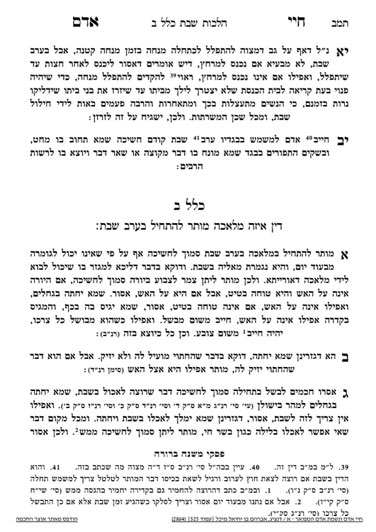We are continuing in siman 1. Yesterday, we learned about a case in which one wishes to put wool into a pot to dye it. We learned that it will only be muttar if there are no concerns that it may come to an issur deoraysa, which, in our case, were stirring the coals and stirring the pot. Therefore, if the pot is not on the fire and the pot is sealed, it is muttar to begin the dyeing process on erev Shabbos so that it should continue into Shabbos.
The Chayei Adam continues, and writes that if it is on the fire, we are concerned one will stir the coals. Stirring the coals was done when the fire appeared to be getting weaker, and is the melacha deoraysa of ma’avir. Even if the pot is off the fire, if it is not sealed, we are concerned that one will stir the pot. Stirring the pot while the pot is on a fire is certainly considered cooking, but even when the pot is off the fire, since we are discussing dyeing, the dyeing process is enhanced, so one performs the melacha of tzoveya.
The Chayei Adam writes that this concept of setting a melacha in motion before Shabbos applies to all actions. If there is no concern for Torah violations, it is muttar on a Torah level and rabbinic level, but if there is a concern that one may transgress a Torah violation, they must either complete the melacha before Shabbos, or set it up in a way that they will not transgress any Torah issurim.
In siman 2, the Chayei Adam writes that, going back to our example, the concern for stirring the coals only applies to an item which benefits from the coals being stirred. If the item does not benefit, it is muttar to begin the melacha on erev Shabbos and leave it on the fire. Since there is no temptation to stir it, we are not concerned a person will transgress the Torah issur. Thus, we see that we look at this issue from a practical standpoint.
This idea will be relevant regarding leaving food cooking from before Shabbos into Shabbos. This is known as shehiyah, and we will discuss it further in the next siman.
Summary
Melacha set in motion to continue on Shabbos without any active participation of a Jew may still be assur miderabanan, out of concern that one will come to transgress Torah prohibitions in adjusting or enhancing the original melacha. Therefore, if the potential Torah prohibitions are obviated, the melacha will be muttar to set in motion before Shabbos. Alternatively, if the potential melacha is of no benefit to the item, we can assume that a person will naturally refrain from transgressing the melacha
Pesach 5783
Click here to watch Rabbi Reingold performing a Model Seder.



